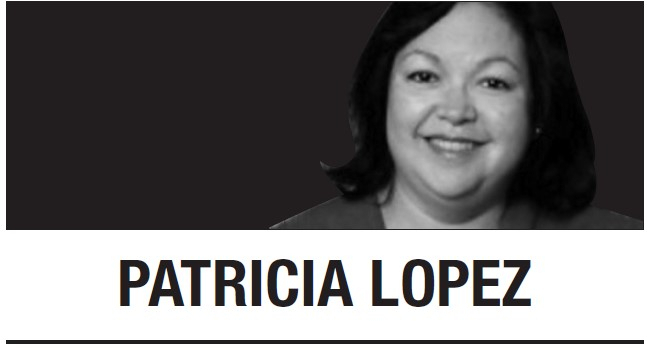
The Iowa caucus has become an outdated relic. Like eight-track cassettes and checkbooks, it served a valuable purpose at one time, but no longer.
Donald Trump, as he has with so many things, reset the rules of the political game here, essentially turning the state into a backdrop for his brand of theatrics.
Florida Gov. Ron DeSantis, on the other hand, played by the old rules. He dutifully visited each of Iowa’s 99 counties, poured money into building the ground game that everyone said was needed, knocked a million doors and held 136 events in the last year, fielding voter questions at every turn. Former South Carolina Gov. Nikki Haley followed a similar, if less intense path, bouncing between Iowa and New Hampshire.
Trump? He held a couple of dozen rallies -- including some tele-rallies -- sent in a handful of surrogates and staged photo ops like the one on Sunday where he delivered convenience store pizza to firefighters in Waukee. He did invest in a well-run ground operation, but also rejected every debate against his challengers and took few impromptu questions from voters.
For this, Trump was rewarded with a historic win on Monday night, romping to a landslide that demonstrated his demographic strength in every corner of the state and among every kind of voter. DeSantis battled his way to a distant second -- a full 30 points behind Trump -- with Haley close behind in third.
In a final bit of ignominy, networks called the race for Trump before Iowans had even finished casting their secret votes.
It wasn’t supposed to be this way.
The concept behind the Iowa caucus was both noble and novel when it debuted in 1972. Ordinary Iowans -- farmers, factory workers, small-business owners, waitresses, salesclerks -- would be able to vet presidential candidates in small forums designed to push past rote talking points and stump speeches to get to something real and meaningful. No handlers, no rope lines. Just candidates and prospective voters.
That was before trackers, and long before the Internet and social media. Iowans took their responsibilities seriously, priding themselves on their ability to take a true measure of a candidate and the organizations behind them.
“I like the history of it,” said Mike Klosterman, owner of a spice shop near the capitol in Des Moines. “But those days are gone. Its time has passed.” Klosterman still marvels that he personally met not one but three candidates who went on to become president. “Not everyone can say that,” he said.
But the caucus is increasingly out of step with how modern America lives, works and picks its presidential candidates. Out of step, too, with how modern campaigns roll.
Larry Jacobs, director of the Center for the Study of Politics and Governance at the University of Minnesota, said the Iowa caucus “is a political system that has far outlived even its most modest claims.”
The caucus, he said, “has become a giant moneymaker for Iowa that also favors voters who are connected to special interests and ideological groups and extremists.”
Because it’s held over a couple of hours on a weekday evening during the bitterest part of winter, many Iowans are excluded from the process. Unlike primary voting, there are no absentee ballots, no early voting periods. Because it’s a party process, there is no time off from work to vote.
Minnesota was also a caucus state at one point, Jacobs said. But the rebellion against the lack of inclusivity became too much. When Minnesotans lined up for blocks to caucus for Barack Obama in 2008, he said, “they threw up their hands at a process for democracy that just wasn’t working.” Minnesota went to a presidential primary after 2016.
Can the caucus ever go back to its glory days? Unlikely. Social media has made candidates far too careful, and the big money needed to run modern campaigns demands that little be left to chance.
“The people who show up are so unlike the rest of America, the rest of the state,” Jacobs said. “It’s just not reflective.” Not since 2000 has the winner of a contested Republican Iowa caucus gone on to win the presidency.
Now Trump has shown that there is no need to play by the rules in Iowa, exposing the falseness of the narrative about small-town democracy even as he benefits from it. The Iowa caucus, even if it survives, may never be the same.
Patricia Lopez
Patricia Lopez is a Bloomberg Opinion columnist covering politics and policy. -- Ed,
(Tribune Content Agency)
-
Articles by Korea Herald




















